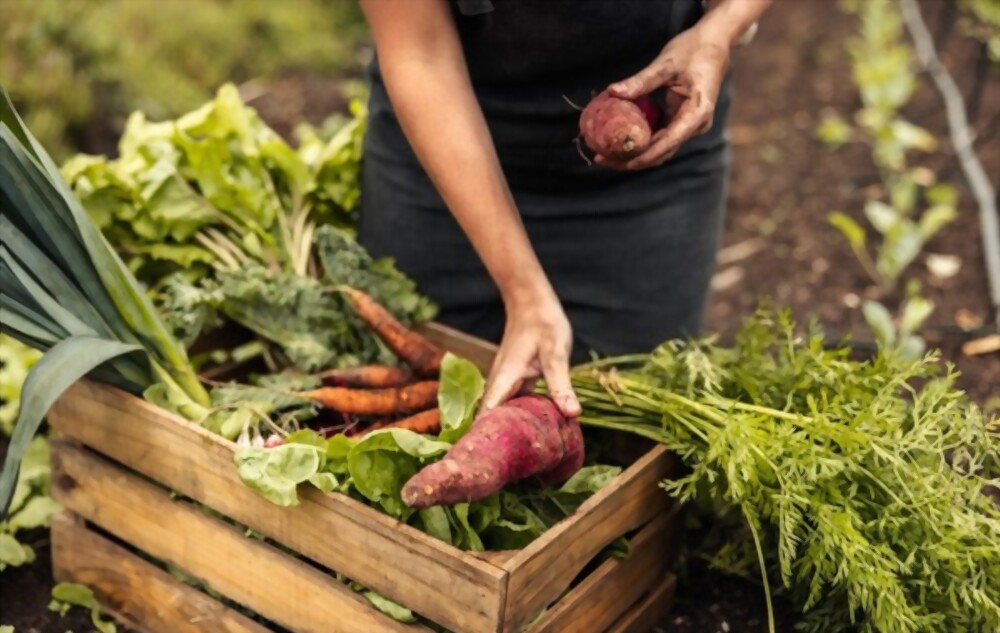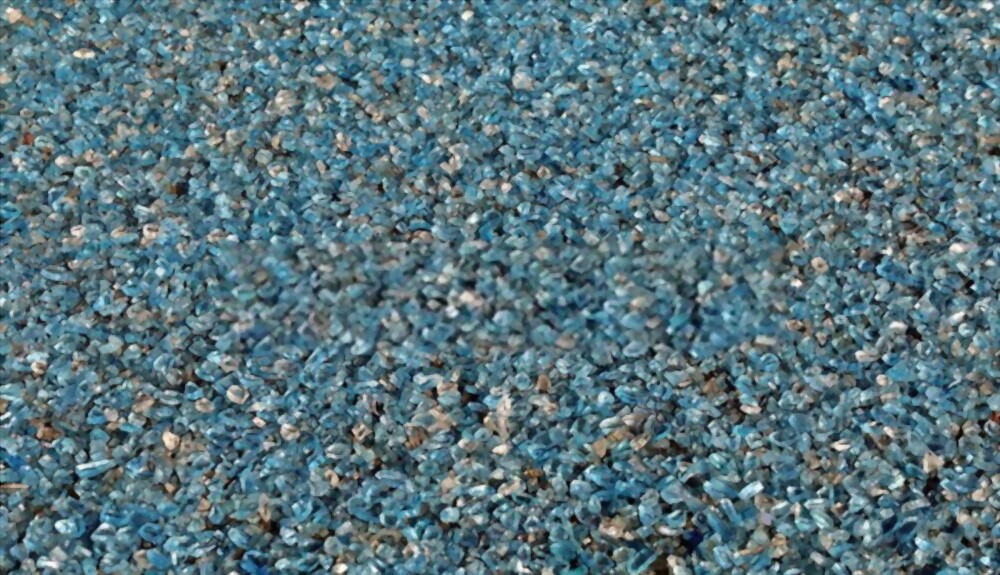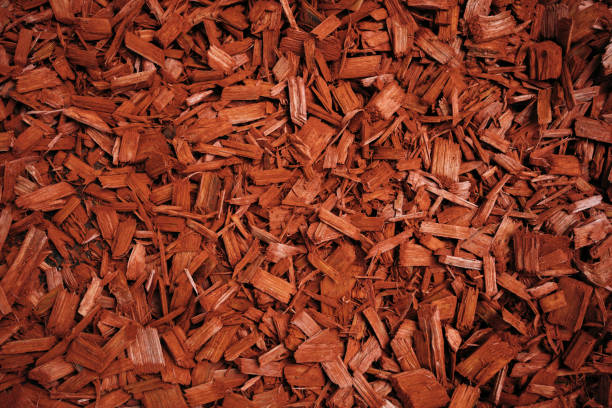If you are a gardener, especially one with flower beds, chances are you’ve used mulch. Mulch is an integral part of any gardening ecosystem. But did you know that you use different mulch for different reasons?
It’s true! And if you care about your yard, let’s figure out the best mulch for you.
Why Mulch?
There are numerous reasons to use mulch in your landscape. The two main categories are environmental and aesthetic reasons, and within each of those categories, there are many factors to consider
The first question to ask yourself is, what’s your goal?
Aesthetic – So Mulch Beauty in Your Yard
There are not as many variables to consider if you mulch primarily for aesthetic reasons. The most important thing to you will be your color. You will want to pick a mulch that adds to rather than detracts from the look of your garden beds. The texture is another consideration. Rish can help you determine the mulch that will make your garden pop while also factoring in all the necessary environmental variables.
Environmental Mulch Factors
Even if you’re mulching primarily for beauty, there are still some environmental considerations. After all, your plants’ environment will majorly affect their looks. And if the health of the soil is a concern to you, that’s another reason to talk to Rish.
How can mulch improve the environment of your garden?
Insulation
One of the primary benefits of mulch is insulation. A sudden cold snap can quickly kill exposed plants. Mulch creates a blanket to keep it warm. Mulch can also insulate plants from extreme heat during the summer.
Moisture Control and Erosion Prevention
You’re aware that moisture is essential for plant life. But in the heat of the summer, it can be easy for water to evaporate quickly or too much water to wash soil away, taking vital nutrients with it.
The right mulch will help keep your plants hydrated and prevent soil from being washed away. The mulch retains the water and prevents the ground from saturating too quickly or eroding.
Protection from Weeds and Pests
Reducing weeds is both a beautification and an environmental benefit. Too many weeds can crowd out and kill your desirable crops. Mulch surrounds the plants you want to grow while crowding out the ones you don’t.
As for pests, different types of mulch repels different pests. Some organic mulches are repellent to bugs. Some mulches have textures that are unpleasant for slugs.
What you need to know is what pests are prevalent in your area and what pests are attracted to the plants you’re growing. An expert landscaper like Rish will know the area and what critters will be competing for your garden’s best spaces.
…Are You Gonna Eat That?
Finally, you need to consider whether or not you will be eating what you’re growing. For example, if you have a vegetable garden, you may have different standards about what will be surrounding your plants.
Remember, what goes into your soil will go into your plants. And if your plants are veggies that will go into your body, you need to ensure that whatever you put into your soil, you don’t mind eventually going into your body.

Types of Mulch
So now that you know the many reasons to mulch and factors to consider when choosing your mulch, it’s time to get into which mulch is right for you. There are two main categories of mulch – organic and inorganic mulch.
Inorganic Mulch
Inorganic mulch is a mulch that is not made from plants. Different types of inorganic mulch are used in different settings. Some are more popular in gardens, while others you might be more likely to see in a playground.
Rock Mulch
Rock or stone mulch is probably the most common type of inorganic mulch. You can often find bags of river rock in hardware stores, but like all mulches, the most cost-effective way to buy it is in bulk.
Rock mulch comes in a variety of shapes, sizes, and colors. You’d have a difficult time naming a type of rock mulch we couldn’t find for you! So whether you are looking for black mulch or red, smooth or natural-looking, Rish has the rock mulch for you.
Rubber Mulch
One popular option is rubber mulch if you are mulching an area with a lot of foot traffic. Rubber mulch is made from used (and cleaned, don’t worry!) tires and is a popular mulch for playgrounds and schools.
Landscape Glass
One particular striking mulch is landscape glass. It’s a recycled product that is polished to remove sharp edges. Landscape glass comes in various colors, and you can undoubtedly find the right one for you.

Organic Mulch
When most people say mulch, they think of organic mulch or mulch made from plants. Depending on where you live, organic mulch can be composed of anything from pine needles (the American south) to corn cobs (the American west) and just about any other plant material you can think of.
Treated vs. Untreated
Whether you use a treated or untreated mulch will depend on the goals we discussed earlier. If you’re growing vegetables or other food, you may want to use untreated mulch so that you don’t ingest any of the treating chemicals.
Untreated Mulch
Some types of untreated mulch might include cedar or pine needles. Many people use straw or even compost as mulch in a vegetable garden. Compost, of course, has the added benefit of adding healthy nutrients to the soil.
Straw, like pine needles or corn cobs, is often used because it’s readily available. But be careful! Some untreated mulch can suck up nutrients in the soil. Untreated, freshly chipped cedar can aid in killing unwanted plants but can also destroy what you’re trying to grow, so be careful about when and where you use it.
Another critical factor to consider with fresh mulch is where it was acquired. If you get a freshly ground tree from the wrong source, it may include ivy (or poison ivy), and that is certainly not something you want growing on your property! Be sure to work with someone trustworthy.
Treated Mulch
The main benefit of treated mulch is you have a lot more control of it. Unlike untreated mulch, which risks potential unwanted plants being a part of it, treated mulch will only have the material advertised.
Treated mulch will be more uniform in composition and comes in many colors. Treated mulch is available at hardware stores and includes varieties such as cedar, pine, and all kinds of bark clippings. Again, however, you are better off buying mulch in bulk.
For a decorative garden, you can pick a red mulch, or whatever color matches your plants. And you can still pick out the shape and variety that is most likely to deter pests or look best.
With all the factors that go into a mulch decision, it’s easy to see why you’d want to consult a professional. You don’t want to pick the wrong type and end up attracting the pest you want to repel or have it all wash away.
Contact Rish for all your mulching needs. Don’t make a mistake and end up with mulch ado about nothing!
 info@rishlawncare.com
info@rishlawncare.com
